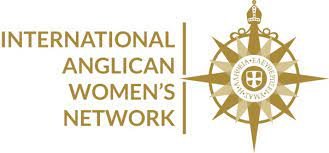A Question of Balance

![Carole Hughes [IAWN]](https://stdavids.contentfiles.net/media/images/Carole_Hughes.width-500.jpg)
The International Anglican Women’s Network (IAWN) seeks to transform unjust structures of society, to challenge violence of every kind and pursue peace and reconciliation. Carole Hughes explains how.
- Promoting gender equality across all areas of ministry and decision-making
- Sharing our situations and stories around the Anglican Communion
- Supporting those working to eradicate gender-based violence, including human trafficking
- Advocating for education and healthcare for women and children
- Advocating eradication of extreme poverty and hunger, and environmental abuse
- Promoting physical well-being for women and girls
- Supporting women’s sustainable economic empowerment
Some might say that achieving these priorities, set by the IAWN Steering Group, is an impossible task! It is indeed if one group, one province, or one region were to attempt to fulfil such transformational aspirations. As a global network, though, we can bring our different skills and diverse contexts to our actions, and collectively we can make huge leaps forward.
The question that remains is where to do we start and within what framework and theological perspectives? As the Chair of IAWN, I attended the Anglican Consultative Council (ACC) meeting in Ghana to offer some suggestions:
- For violence to be challenged and peace and reconciliation to occur all genders need to work together. Violence is not a women’s issue. Everyone has a role to play.
- Celebrate gender differences. We all bring different and diverse gifts to the table. One of the issues for many provinces in the Anglican Communion is the inclusion of gender differences in our leadership positions. It is important to remember that it was Mary who firstly encountered the risen Christ and the first to tell the good news.
- Recognise that the gender language we use for humanity and for God excludes many people, and leads to unjust structures. Simply put, if one gender dominates in the language that we use to describe ourselves, our communities or God then power can be given to one gender over another, even if it is in our subconscious. Such power can lead to unjust relationships and gender-based violence and exclusion of many, particularly women, in leadership.
- Implement Safe Church practices with zero tolerance of violence and abuse. This is vital as it becomes part of our legislation and part of the way we live together. We aim to provide inclusive places where peace and reconciliation are fully realised to everyone.
- Mentor and offer role models to one another and to the communities around us that embrace gender difference. This seeks to improve self-understanding and raise consciousness on the effects of harmful gender stereotypes that drive abuse and exclusion.
- Many of our young people are leading us in the challenges around stereotypes and gender bias. We need to listen to them.
For more information on the Network visit: https://iawn.anglicancommunion.org/
or Facebook page: https://www.facebook.com/groups/IntAngWomen